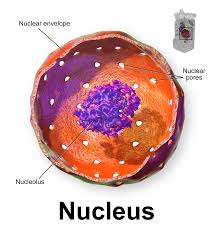记忆方法
1. nuc- + -le- (diminutive affix) + -us (Latin suffix).
2. literally "little nut".
3. => kernel of a nut.
2. literally "little nut".
3. => kernel of a nut.
中文词源
nucleus 原子核,细胞核
来自拉丁语nux,果仁,核,词源同nut.引申词义原子核,细胞核。
英语词源
- nucleus
-
nucleus: see nut
- nucleus (n.)
- 1704, "kernel of a nut," 1708, "head of a comet," from Latin nucleus "kernel," from nucula "little nut," diminutive of nux (genitive nucis) "nut," from PIE *kneu- "nut" (cognates: Middle Irish cnu, Welsh cneuen, Middle Breton knoen "nut," Old Norse hnot, Old English hnutu "nut"). General sense of "central part or thing, about which others cluster" is from 1762. Use in reference to cells first recorded 1831. Modern atomic meaning is 1912, first by Ernest Rutherford, though theoretical use for "central point of an atom" is from 1844, in Faraday.
权威例句
- 1. The repulsive force within the nucleus is enormous.
- 核子内部的斥力是巨大的。
- 2. the nucleus of a cell
- 细胞核
- 3. These paintings will form the nucleus of a new collection.
- 这些画将构成新的收藏系列的基础。
- 4. These young people formed the nucleus of the club.
- 这些年轻人成了俱乐部的核心.
- 5. The nucleus of an atom consists of neutrons, protons and other particles.
- 原子核由中子 、 质子和其他粒子构成.

